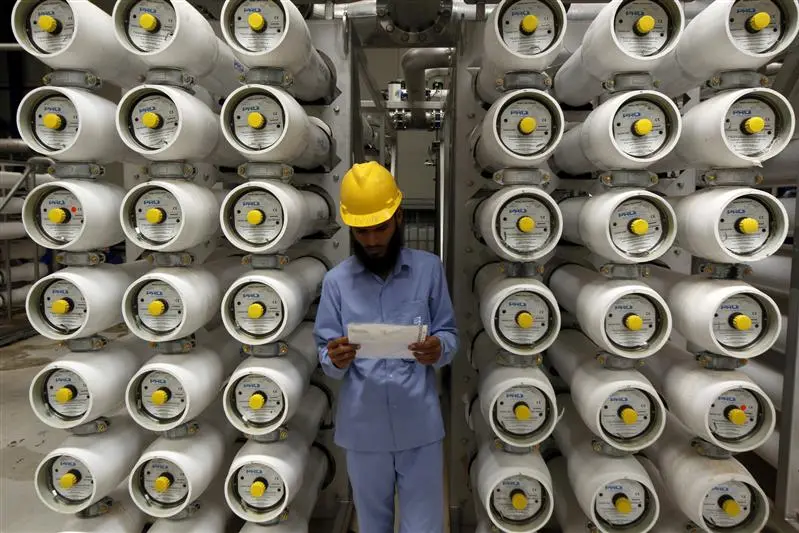PHOTO
There is no more vital natural resource than water, especially in this part of the world, so it comes as no surprise that the Kingdom keeps the law regulating water supply and use up to date.
Saudi Arabia’s most recent water law aims to preserve, develop, and protect water resources, and to ensure their sustainable management and use, and to ensure reliable and stable supplies of safe, clean, high-quality water at competitive prices that serve all consumers in the Kingdom.
The new law clarifies that all surface water and renewable and nonrenewable groundwater is public property, and subject to the water law. With the exception of seawater, no one may use or develop any water source without a license from the Ministry of Environment, Water and Agriculture. A license to exploit water sources may not be transferred with ownership of the relevant land without the ministry’s approval.
Water tariffs will be proposed by a new ministerial committee headed by the minister of environment, water and agriculture. Other members are the ministers of energy; industry and mineral resources; economy and planning; finance; and municipal and rural affairs.
This committee will submit its proposals to the Council of Ministers for approval, taking into account the principle of rationalizing water use, preserving resources, calculating domestic and commercial water requirements and the cost of production, transport, distribution and storage, bearing in mind the financial circumstances of those on low incomes. This ministerial committee will also conduct a review of water tariffs at least every 5 years.
The Ministry of Environment, Water and Agriculture will prepare a code for water resources and their use in the next 2 years, which will be subject to periodic updates.
An important goal of the new law will be to protect the public interest by ensuring that the necessary urgent measures are in place to supply additional quantities of water for urban use in the event of a shortage.
The law also requires the Ministry of Environment, Water and Agriculture and the Electricity and Cogeneration Regulatory Authority to provide private sector institutions with information that enables them to make decisions and prepare feasibility studies for investing in water resources and their development.
Under the new law, it is an offense to practice any water-related activities without a license, or to provide false or misleading information about these activities. Licensees are required to provide all information or data required by the ministry, may not withhold information necessary for the use or development of water resources, and must provide these licensed services to consumers in a proper manner.
It is also an offense to misuse water resources, to exploit a state of emergency or natural disaster, to violate the principles of fair competition, or to act in any way that leads to water scarcity or pollution.
The penalties for breaking the new law include suspension of business for up to a year, revocation of the license, or a fine of up to SR20 million ($5.3 million) for each offense.
While the law is important, the ultimate responsibility for conserving sustainable water supplies is shared by the whole community; individual citizens, along with the competent authorities, are the best protectors of these vital resources.
Dimah Talal Alsharif is a Saudi legal consultant, head of the health law department at the law firm of Majed Garoub and a member of the International Association of Lawyers. Twitter: @dimah_alsharif
Disclaimer: The content of this article is syndicated or provided to this website from an external third party provider. We are not responsible for, and do not control, such external websites, entities, applications or media publishers. The body of the text is provided on an “as is” and “as available” basis and has not been edited in any way. Neither we nor our affiliates guarantee the accuracy of or endorse the views or opinions expressed in this article. Read our full disclaimer policy here.
© Arab News 2020





















